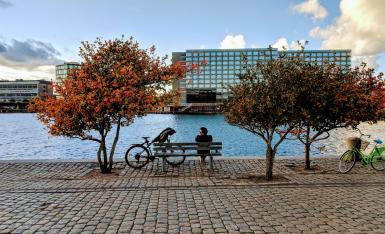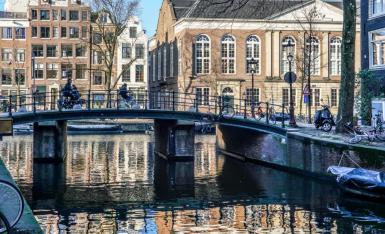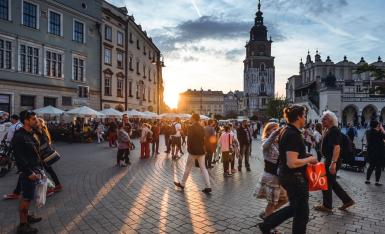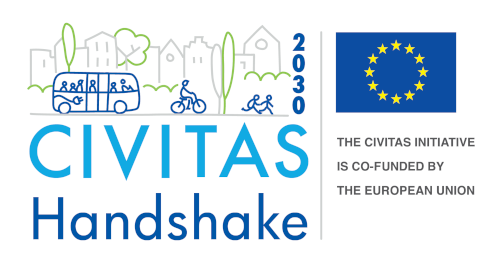Modelling and Assessment
Socio-Economics of Cycling
Traffic models have historically often ignored or underrated investments and active modes of transportation, and been insensitive to the effects on different parts of society that decisions on the design of solutions can have. Handshake's specialist partners in 'Bikenomics' (~bike economics) will help address this, through a joint learning exercise with cities to develop the right indicators to quantify, judge and improve investment decisions using the right choice of assessment methods.
Informing future investment decisions
Such approaches are new to many cities and have often only been used in more advanced cities with the luxury of time and knowledge to invest in such assessment activity. However, the pay-back of prioritising the right solutions in the right places is huge. Our leading cities will refine their approaches, and help our future Capitals use this to leapfrog over gaps in their current knowledge and practices.
Cities using this solution

Leader: Copenhagen
The Danish Ministry of Finance’s transport economic key values show that for every extra km traveled by bicycle society gain 4.80 Danish kroner (0.65 euros), and for every extra km traveled by car the cost is 5.28 Danish kroner (0.70 euros). In all, there is a total gain to society of 10.08 Danish kroner (1.35 euros) for every km travelled. This data can be used to asses both planned and realized projects to determine their feasibility, internal rate and other relevant economic results.
In relation to the 10 new bicycle and pedestrian bridges Copenhagen has built since 2014, with Handshake it will use Bikeconomics to measure the value of large infrastructural project such as these for cyclists. As cycling investments in Copenhagen generally have large return in investments the data can be used to push for further investments in infrastructure in Copenhagen. Furthermore, other cities can be inclined and inspired to invest in larger infrastructural cycling projects.

Leader: Amsterdam
The city of Amsterdam did research on the role of cycling in the overall urban economy. The total worth of a modal shift towards the bicycle between 2010 and 2015 in Amsterdam has been calculated and adds up to more than €120 million.
The total social value in euros was €122,900,000:
- Health: €21,400,000
- Liveability: €13,700,000
- Mobility: €87,600,000

Follower: Bordeaux
The objective is to set up a clear list of indicators to measure the effects of the cycling policy. The city needs to have figures on the benefits and costs of cycling in order to say “the use of cycling is €X, and the use of a car is €X”, taking into account factors such as accident cost and public health issues.

Follower: Krakow
Socioeconomic assessments of investments in cycling are a currently unexplored possibility, so it would be very interesting for the city to investigate them and to have another argument for cycling promotion and cycling infrastructure expansion.

Follower: Turin
The socioeconomic assessment of investment in cycling is something very urgent and never used in the past. Learning from Amsterdam will help the city to use it as tool for decision making at political level and in the in the planning process. With this know how the city will be able to evaluate the economic benefit for the city consequent of investing on cycling infrastructures and services.
